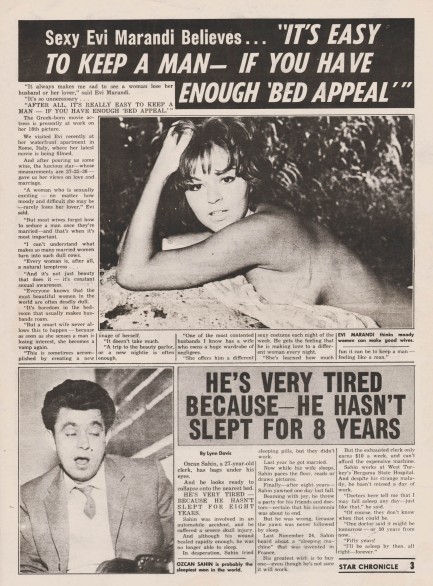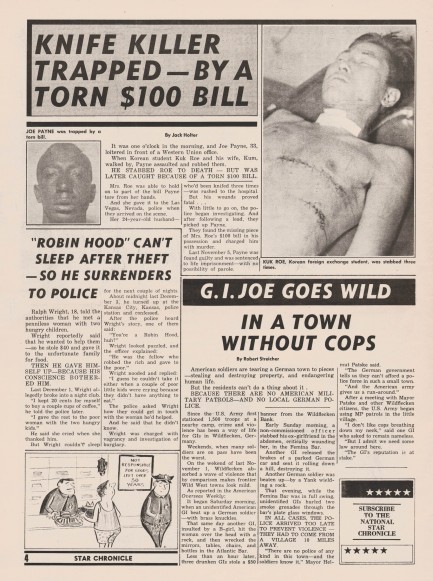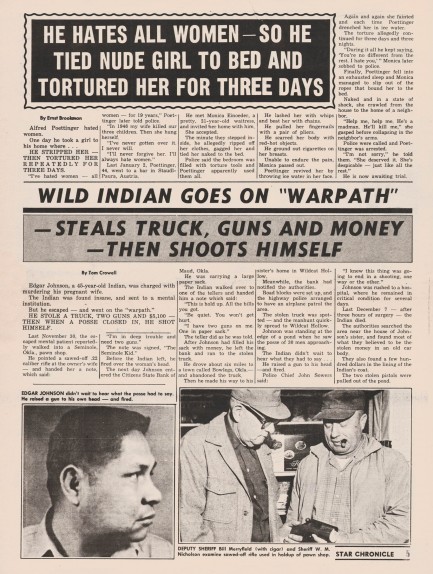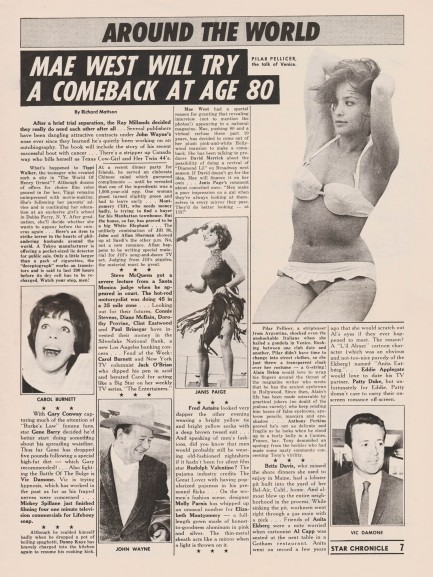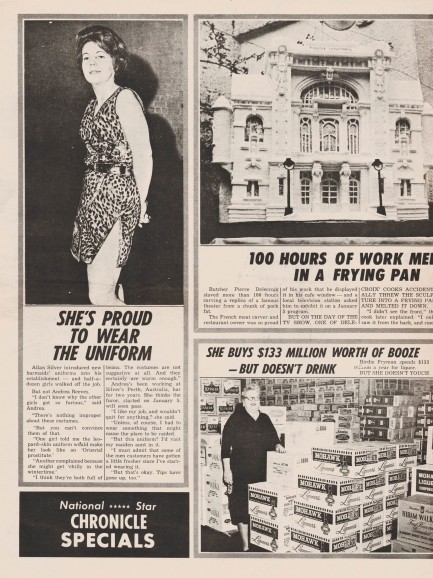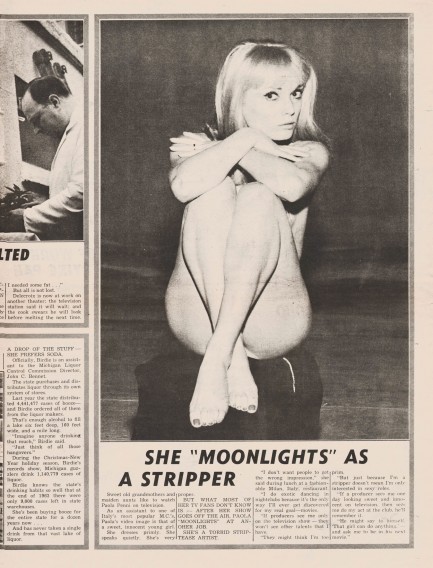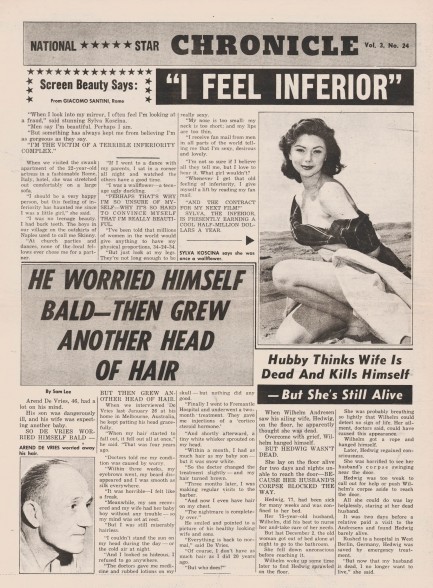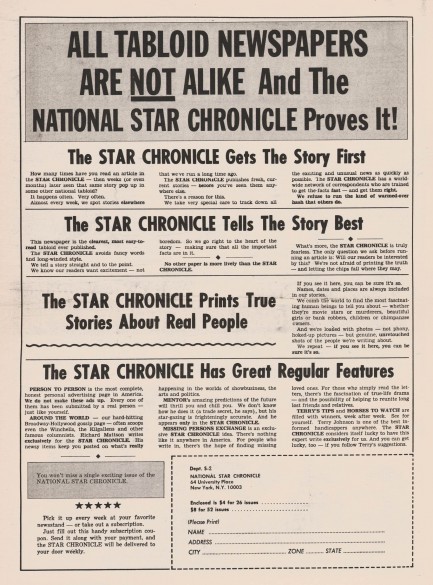| Femmes Fatales | Jul 19 2020 |


| Femmes Fatales | Oct 3 2019 |

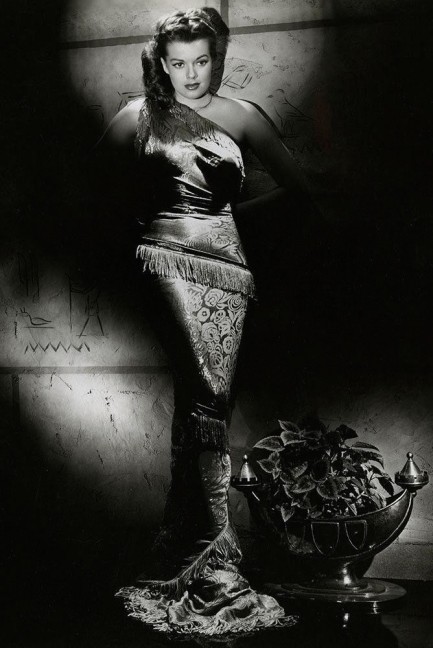
| Intl. Notebook | Mar 8 2017 |


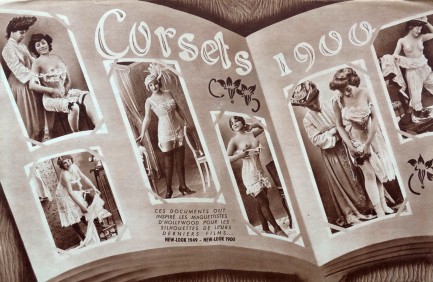
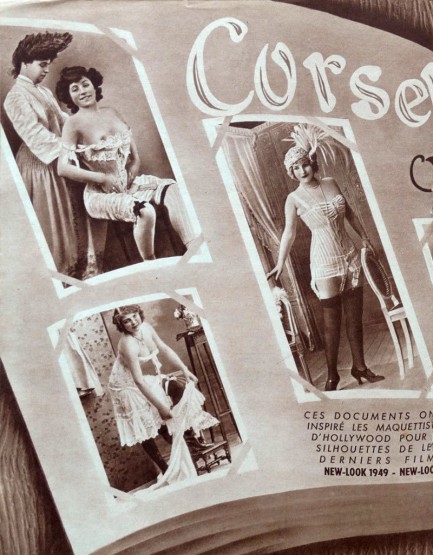
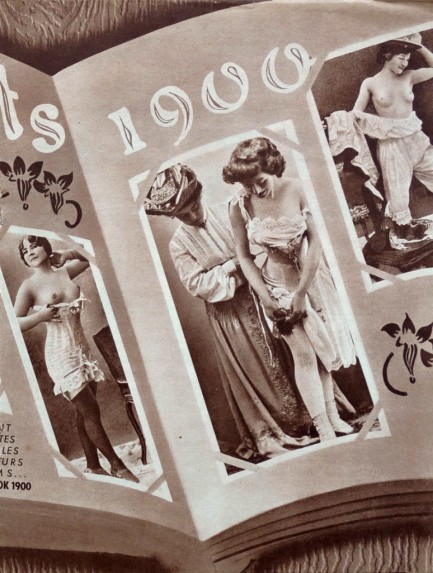
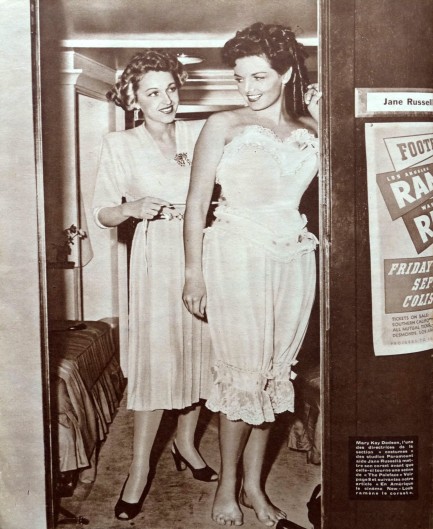
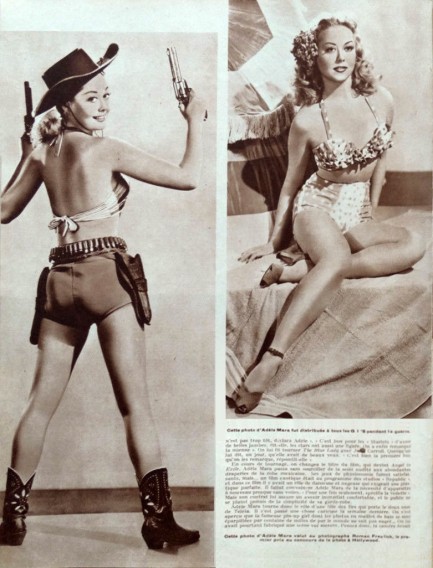
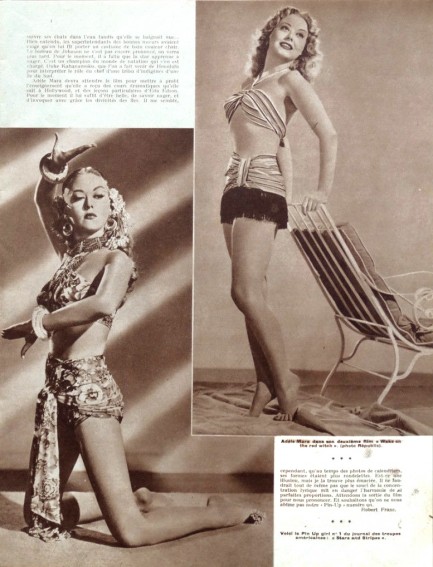
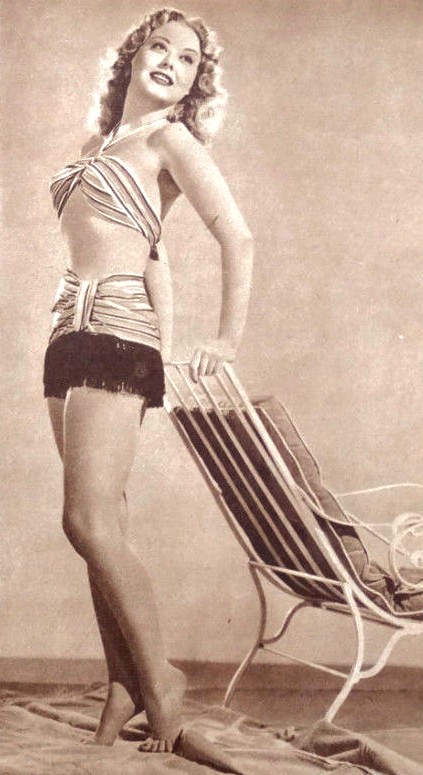

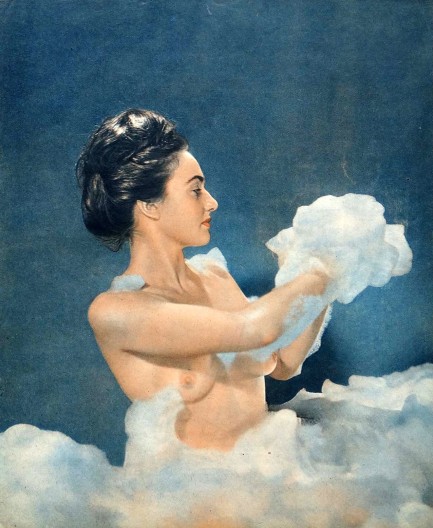
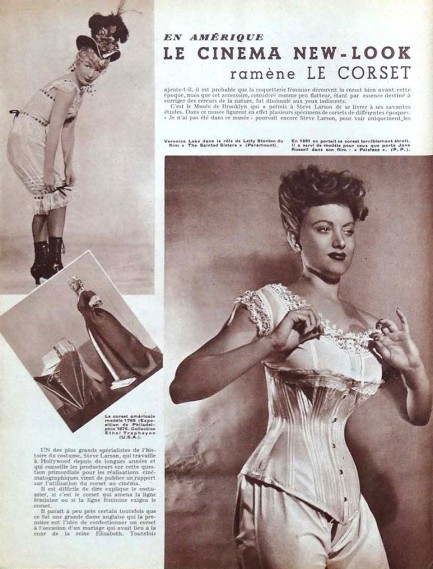
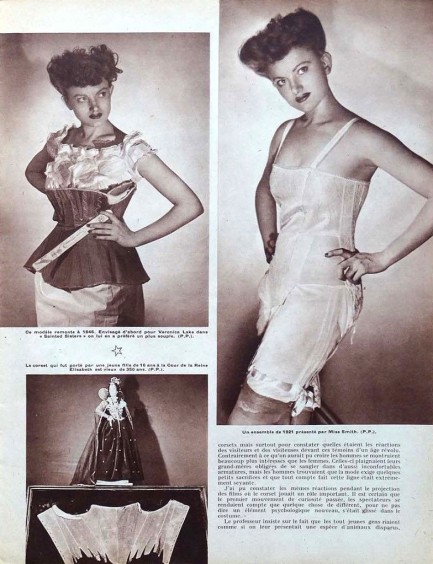
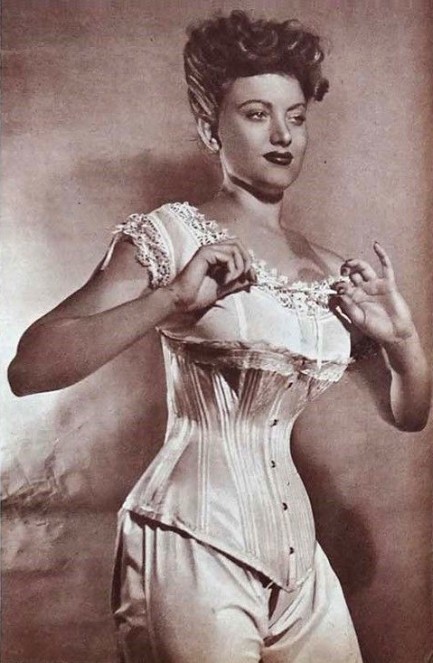
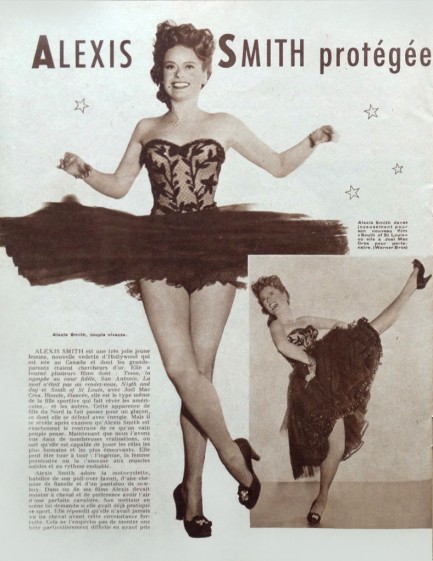
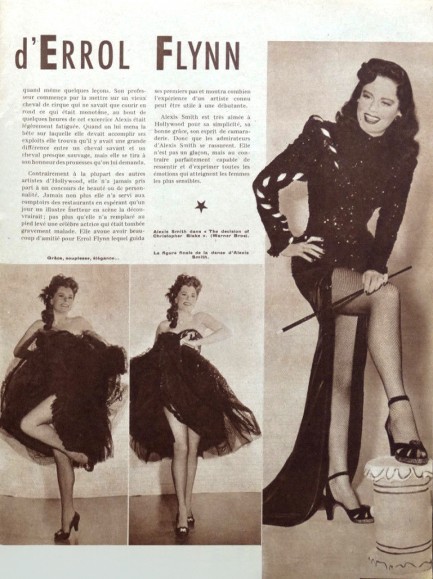
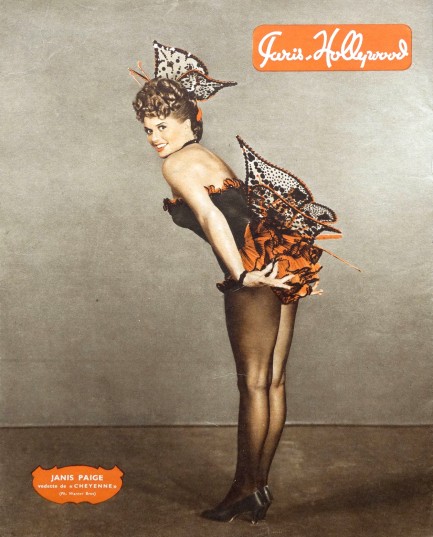
Above are some scans from Paris-Hollywood issue #56, published in 1949. Paulette Goddard is the cover star, sporting a crazy hair-do that makes her look a bit like she has horns. The cover text explains that the shot was made as a promo for her role in Les Naufrageurs des mers du sud, better known as Reap the Wild Wind, and we'll just assume the wild wind did that to her hair. The movie was made in 1942 but due to a little inconvenience called World War II did not play in France until later. Inside the issue you get Alexis Smith (described as a protégée of Errol Flynn), Jane Russell, Mary Kay Dodson, and the always lovely Adele Mara. The back cover goes to Janis Paige, who's posing in costume for her role in the western Cheyenne. We have more of these magazines in the website and you can see them by clicking the keywords “Paris-Hollywood” below.
| Vintage Pulp | Mar 8 2012 |


This National Star Chronicle published today in 1965 forgoes its usual cheesecake cover in favor of screaming text about a torturer. The person in question is Alfred Poettinger, who indeed tied a nude woman to his bed and tortured her the last three days of December 1964 in the village of Studl-Paura, Austria. The torture took the form of whippings, followed by insertions of red hot needles. It’s at this juncture that the Chronicle’s account veers into pure fiction. In the real world, the woman, Monika Einoeder, managed to slip her bonds and flee naked to an adjacent house, where she called the police. Cops arrived at Poettinger’s only to find that he had hanged himself. But in Chronicle world, Poettinger didn’t die, but rather was trundled off to jail, where Chronicle house scribe Ernst Brookman allegedly scored an interview. The point of such a blatant lie, we presume, was to convince readers that the Chronicle had a network of intrepid reporters blanketing the world. It probably worked, too, but then this little thing called the internet came along and now we can look up articles from Jan 2 1965 and read for ourselves over and over that Poettinger was swinging from the rafters when police found him. So much for the Chronicle’s motto: True Stories About True People. Well, at least they got half of it right, and to their credit the editors didn’t forget the cheesecake entirely. Inside, it takes the form of Evi Marandi, Pilar Pellicer, Janis Paige, and Paola Penni, all of whom you see below. More from National Star Chronicle later.

